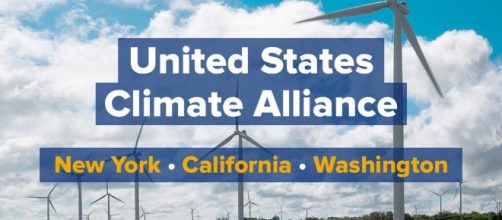UPI is reporting that former New York Mayor Michael Bloomberg is cobbling together a coalition of states, cities, and private companies that would directly negotiate with the United Nations a plan by which they will adhere to the Paris Climate Agreement. The move is without question in defiance of the United States Constitution and should get anyone at a state and local level trying it into severe legal trouble.
What does the Constitution say about states entering into treaties?
Article 1, Section 10, Paragraph 1 states, in part, “No State shall enter into any Treaty, Alliance, or Confederation.” The reason for this prohibition should be apparent to anyone who pays attention to the implications of state and local governments having their own foreign policy.
The forming of treaties and alliances are the sole responsibility of the federal government. California and New York can no more enter into a “Climate Alliance” than Texas join OPEC. Any other stance would engender chaos. The founding fathers, noting what happened during the Articles of Confederacy which featured a weak central government, well recognized this truth.
What can states and local governments do about climate change?
To be sure state and local governments can, in most circumstances, regulate commerce within their own borders. California imposes draconian environmental laws that have had a detrimental effect on businesses of all kinds. The state also offers generous subsidies for solar energy.
Three states, New York, Vermont, and Maryland, prohibit hydraulic fracking, a method of extracting oil and natural gas from shale formations that have upended the energy markets. Ironically, such bans tend to run counter to the goal of fighting climate change as they limit access to natural gas, the cleanest burning of fossil fuels.
The upshot is that while state and local governments can regulate businesses for environmental purposes, they cannot do so as a party of a treaty with other countries or an international body such as the United Nations. If they try it, they will find themselves in court and face legal sanctions.
The ‘climate alliance’ benefits Texas
The economic consequences of a so-called “climate alliance” will also be very severe.
States such as New York and California are already losing population and businesses as the costs and hassles of dealing with taxes and regulations continue to mount. The main beneficiary of this phenomenon has been Texas, which has a business-friendly environment and has been eager to attract businesses and the tax money they generate from blue states they have been obliged to flee from. An attempt to meet the dictates of the Paris climate accord on the state and local level will accelerate the process.


